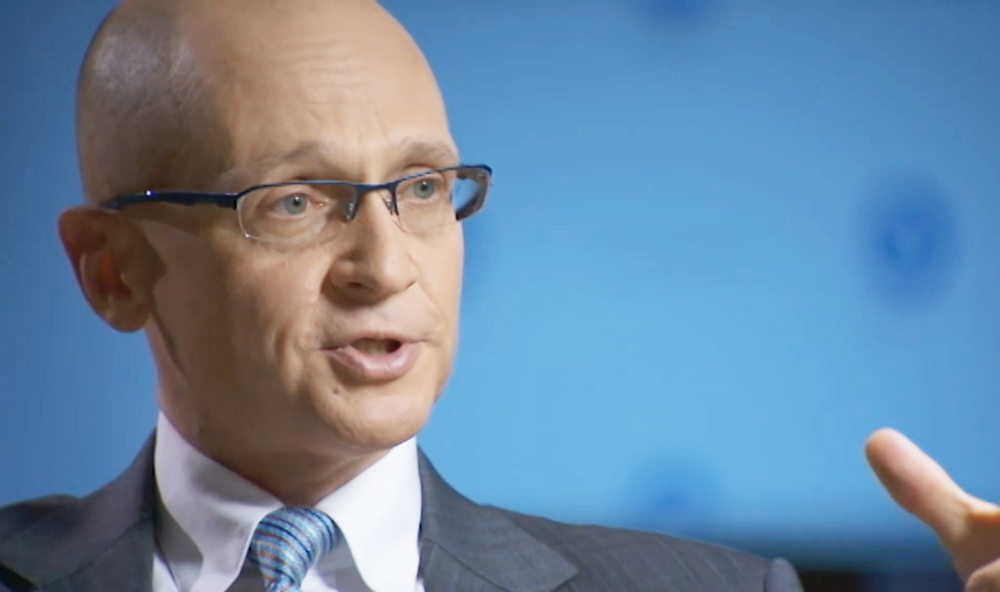
Sergei Kirienko: Today We Are Number One
back to contents– Mr. Kirienko, nuclear technology is Russia’s major export product. Lucrative contracts are many, totaling hundreds of billions of US dollars, as far as I know. Will you be able to perform them all? Geopolitics meddles in the process from time to time anyway.
– You know, I believe the only thing that matters is the customer’s interest, a real and fundamental interest. If it exists, customers will overcome all the hurdles, even political.
– But the fact is that the external pressure can be quite strong, judging by documents that have been published, say, by WikiLeaks. Take our projects in Bulgaria, for example. America was active in impeding them.
– It is true, to say the least. Nonetheless, what is the most important for me is that everywhere, where we built nuclear stations, customers asked for more. No sanctions apply to Russian nuclear companies, either politically or formally.
The nuclear market is influenced by politics and exhibits intense competition. This is the reason why our offers should have clear advantages. Nuclear stations are not the only product we sell. We guarantee that we will help our customers build a legal framework, establish regulatory bodies and train industry professionals so as to engage the newly emerged national nuclear industry in the construction project from the very beginning and let it improve nuclear competencies.
– Are we number one on the market in this respect?
– Yes, we are. And we are number one in terms of contracts. We are ahead of others by a landslide. Today there are 34 large-capacity reactors in our international contract portfolio. These contracts will be performed within the next 10 years. I am talking about only those contracts that have been signed – contracts that will pay within 10 years. In terms of money, the contract portfolio totaled 110 billion US dollars as at the end of 2015. Plans for this year are to reach 136 billion.
And if we take into account the service life of a nuclear station – because it is constructed in seven or eight years and then operated for 80 years – fuel that is to be supplied during the entire service life, our existing contracts exceed 300 billion US dollars.
– A couple of words about new products. What products does Rosatom offer inside and outside the country? How soon will supercomputers go into production?
– They have long been in production.
– Well, what about products for common people? I mean products that have been designed for them. Is Rosatom developing such solutions?
– If you mean individual consumers – I do not like the phrase ‘common people’ – we have nuclear medicine.
– Any recent developments here?
– First, diagnostics. More specifically, it is about early detection. First of all, I am talking about oncology, of course. But there is a number of heart diseases, the most complicated and dangerous of them. They are best diagnosed using radiation technologies. We have now every technology that is needed for nuclear radiation medicine. Everything is produced in the Russian Federation. I mean all the diagnostic devices, starting from PET scanners.
– Do regional hospitals buy your hi-tech products? Are they ready to do it? Do you receive orders from inside the country?
– There is no single answer. I think trust has yet to be earned. I am sure it is wrong to say that our products are domestic and all of you patriots have to buy them from us. It is good that we are a domestic producer, but what is really important is that we substitute imported products. Having made these products, we now have to prove they are competitive.
What else do we offer consumers? For example, security systems. They detect explosives and recognize faces. It means they are capable of remembering and recognizing every person who enters a sports facility and checking where he or she carries explosive or radioactive substances.
– What is the level of security? Could you put it in layman’s terms?
– It looks like this in layman’s terms. Our latest devices are capable of detecting traces of explosive substances on the hands a month after the person touched it.
– I have read that we are going to offer a new nuclear station project to ASEAN countries. Is it true? What is all about?
– It is true. But we are ready to offer it to any other country, not just ASEAN. No doubt that the nuclear power market is totally global, with everyone watching everyone. New customers always know what exactly other customers have bought from us. They come and say, “I want the best of what you have.” Perfect! You are welcome. The reactor startup at Novovoronezh Unit 6 in late May was the most important event in this respect. Because it is a reactor with a capacity of 1,200 MW. More important is that it is the world’s first Generation III+ nuclear station.
– No one has it yet?
– No one has a complete station, but everyone is doing it. All the countries have declared after the Fukushima disaster that a new generation of nuclear stations should appear. It should not be the third generation as all the most advanced nuclear stations at that moment belonged to Generation III. Generation III+ means full compliance with performance standards for the third generation plus improved safety. Requirements for safety are absolutely different now. And the world’s first nuclear station of the new generation has been built in Russia.




